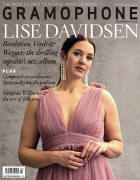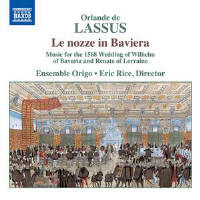Texte paru dans: / Appeared in: |
|
|
Outil de traduction (Très approximatif) |
|
|
Reviewer: Fabrice Fitch The festivities in 1568 for the wedding of Renate of Lorraine to Wilhelm V, heir to the duchy of Bavaria, were among the high points of Lassus’s life in Munich. He took part in performances of astonishing magnificence, including several blockbusters for multiple choirs by visiting composers; and he played the role of Pantalone in knockabout theatrical events. He could not have known that within a few years, ducal bankruptcy would lead to the downsizing of the chapel he led and that his friendship with the bridegroom would fray irreparably. A retrospective vantage point gives the event an undeniable poignancy. This recording takes inspiration from a detailed eyewitness report, excerpts of which are cited in the equally detailed booklet. It focuses on the commedia dell’arte performances just mentioned, linking them to the book of villanelles and morescas Lassus published in the early 1580s, which account for the lion’s share of the tracks. (The statelier celebrations are represented by a couple of Latin-texted pieces, including one composed specially, whose words might have made the newlyweds blush.) A variety of vocal, choral and instrumental combinations are pressed into service, which seems odd, for as theatre music these pieces would more likely have been sung by soloists, with light continuo at most. Partly for this reason, the singers do not respond as sharply to the changes of mood, tone or speaker, or the swerves from speech to sung text, as Ensemble Clément Janequin or Concerto Italiano did in their pomp with a flexible beat, knowing vocal inflections and pinpoint ensemble. The most obvious signal is the graphic obscenity of the morescas, which dares performers to take them by the scruff of the neck; in the madrigals the innuendo is subtler (well, only just: ‘Mi me chiamere Mistre Righe’ – ‘they call me Mr Stiffy’ – is about a baker), but listening to them one would hardly know: these undeniably charming performances give the impression of missing the point. |
|




